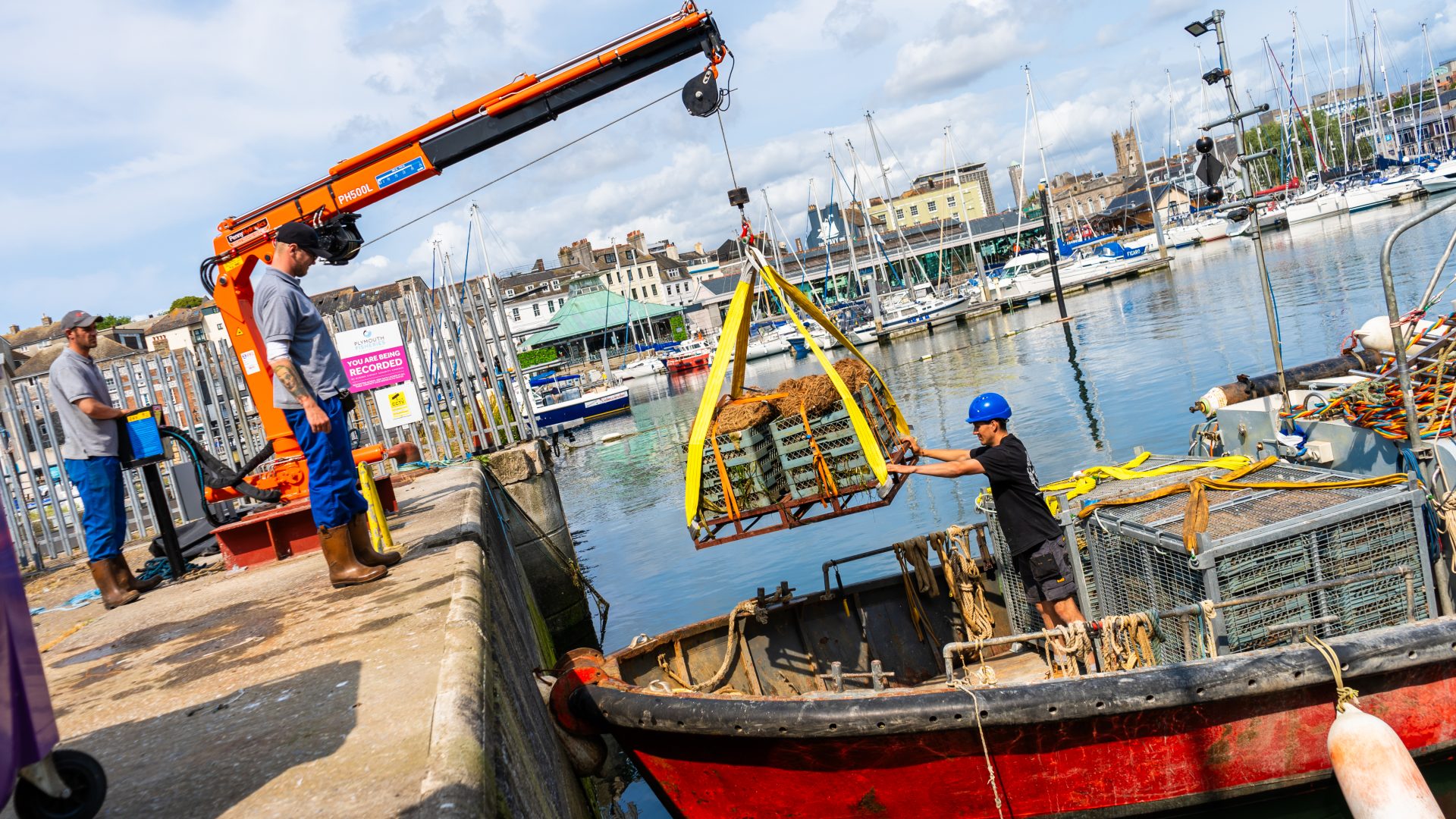Work on England’s largest seagrass restoration effort continues in Plymouth Sound National Marine Park, under the LIFE Recreation ReMEDIES project.
As the restoration lead in the project, we have deployed 100 seagrass pillows into the restoration site at Jennycliff bay, each containing around 40 healthy seagrass plants. Each plant also has lots of rhizomes, which is good news, as the rhizomes spread underneath the sediment they are growing in and can send up new shoots.
With this latest effort covering 2,500 square metres of the seabed, it brings the total area of seagrass planted in Jennycliff Bay to over 3 hectares, which is excellent news for this sensitive and vitally important habitat.
How do we restore seagrass?
To restore seagrass, we hand collect seagrass seeds from healthy meadows, and plant them into sand on 100% biodegradable mats, made from cotton and hessian. They are nurtured in our seagrass cultivation laboratory at the National Marine Aquarium, until the seedlings have become established into strong plants, which are then ready to be planted into the seabed.
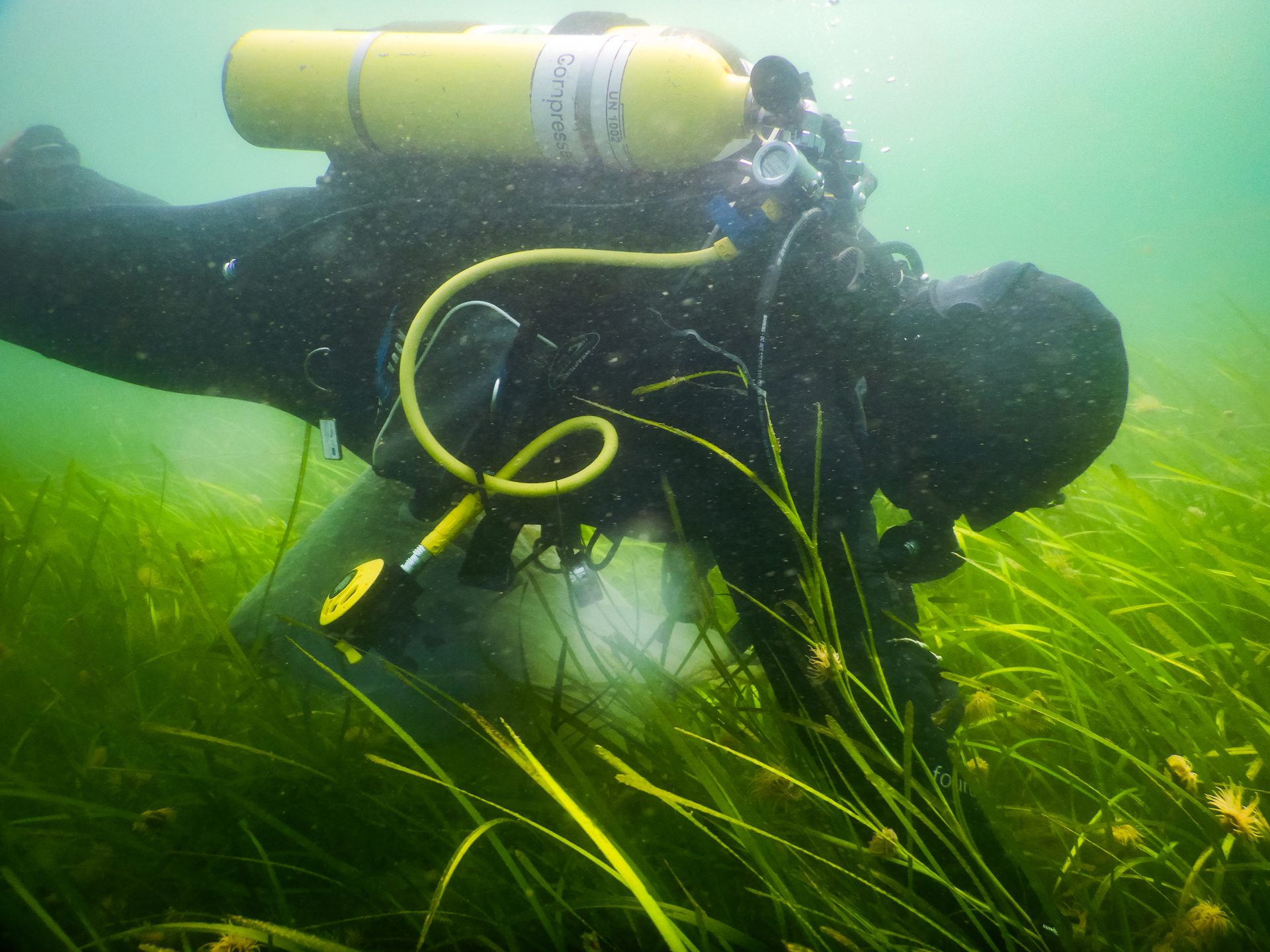
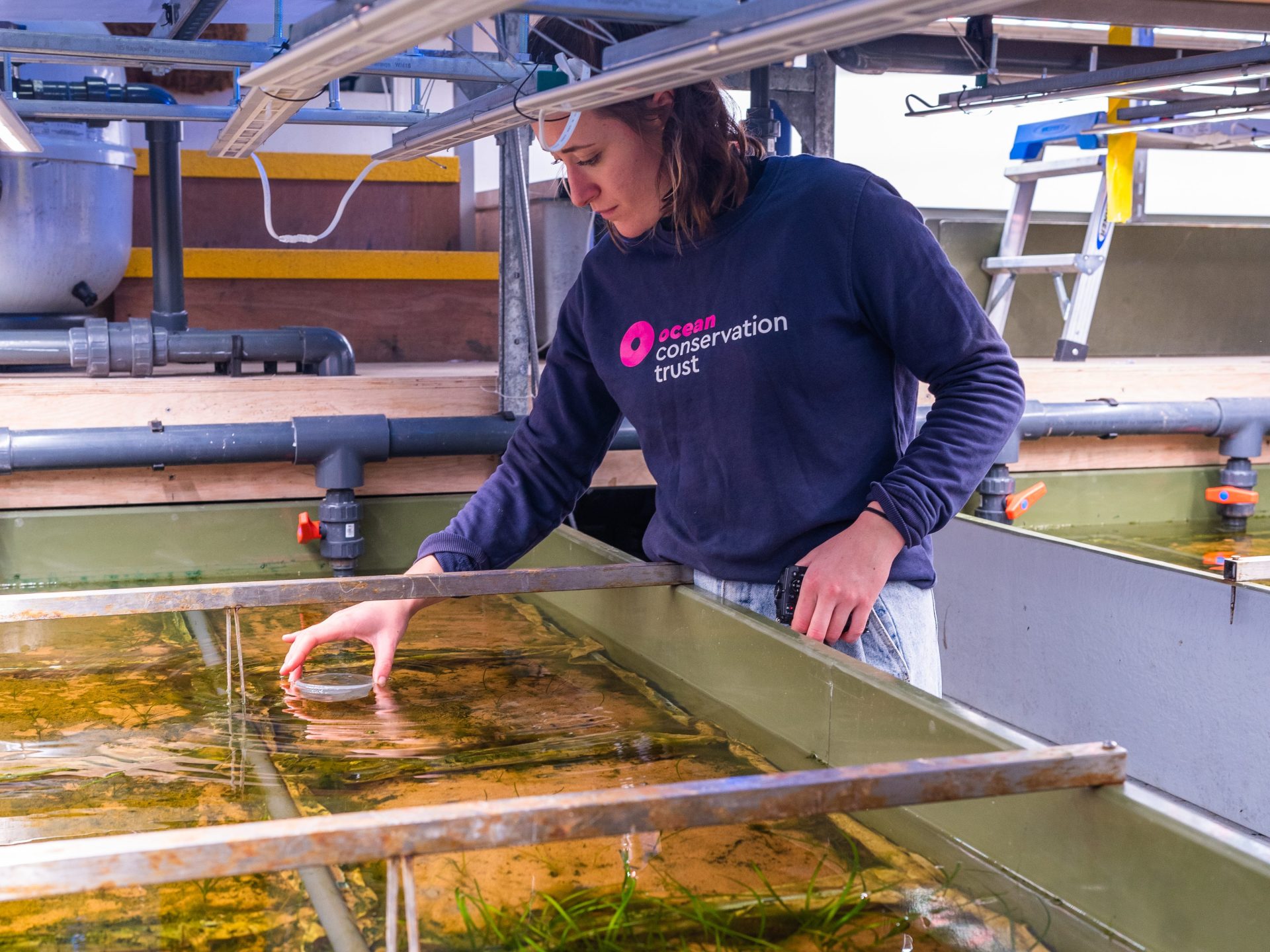
Our professional dive team then head off to the restoration site, where they lower the seagrass mats into the water and pin them onto the seabed. Over time, the mats will biodegrade, leaving healthy seagrass plants to flourish into meadows. Healthy seagrass meadows are vitally important for the multiple benefits they bring to the environment, including acting as fish nurseries for many commercial species, being a biodiversity hotspot, reducing the effects of coastal erosion and capturing carbon.
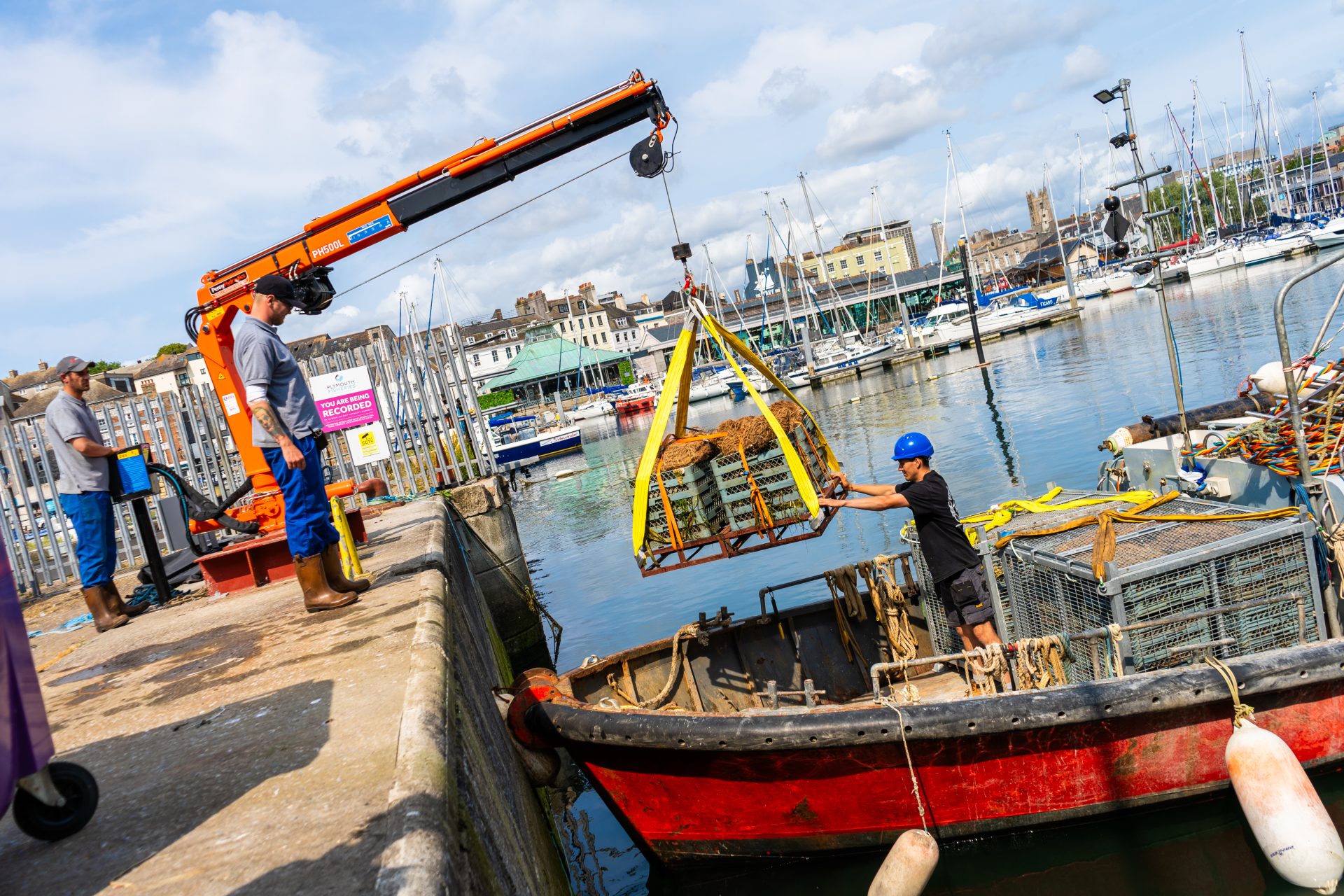
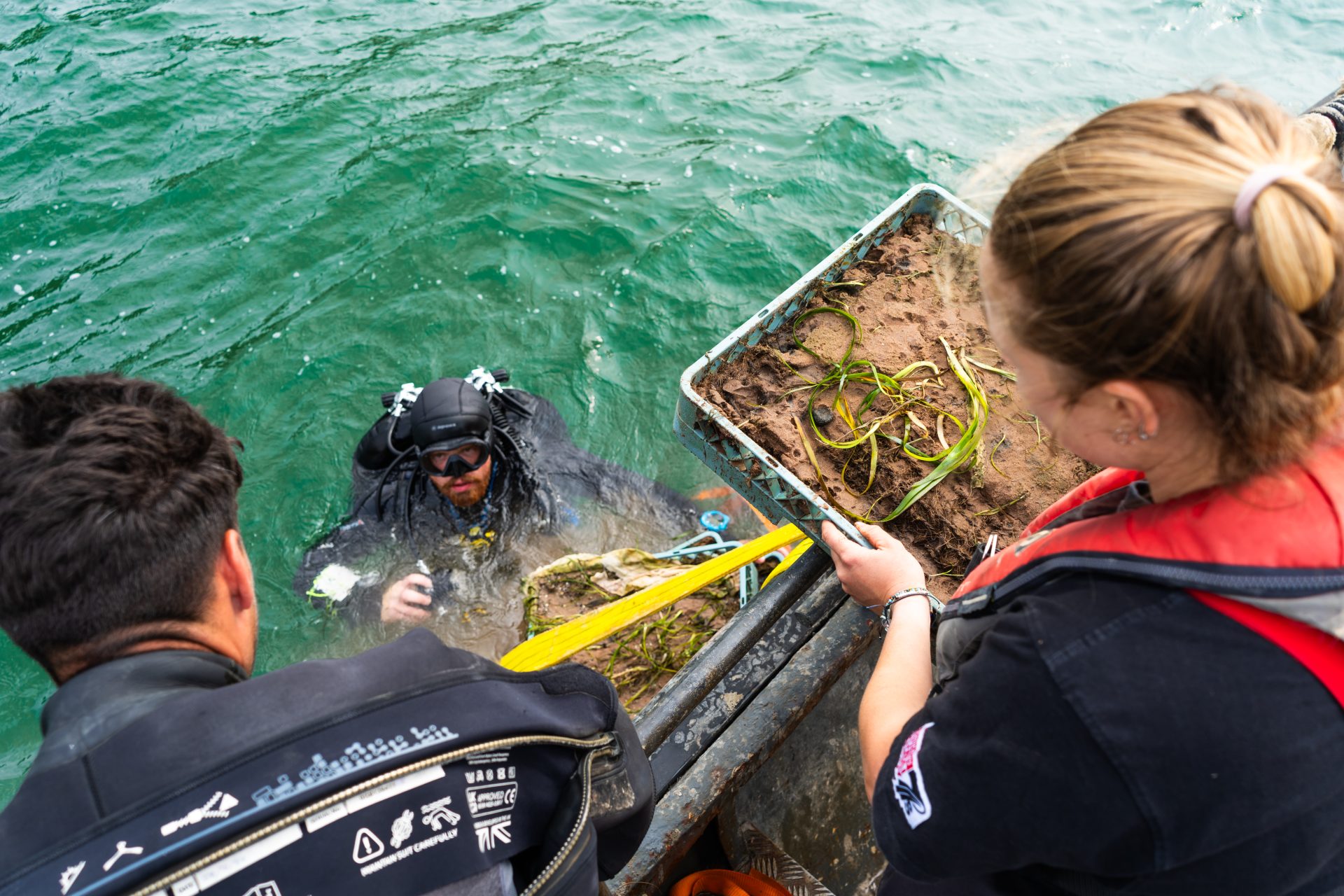
What’s next for us in our restoration work for the ReMEDIES project?
The restoration efforts don’t stop there, as our Habitat Restoration Team will soon be back out on the water to start the whole process again; collecting seagrass seeds to grow in the seagrass cultivation laboratory. The team are always looking for innovative ways to further their seagrass restoration efforts, so will experiment with new techniques to increase the growth of the seagrass and the restoration area at Jennycliff Bay and beyond. Watch this space!
LIFE Recreation ReMEDIES is a £2.5 million four-year project to protect and restore fragile marine habitats within five Special Areas of Conservation in southern England. ReMEDIES is funded by the EU LIFE programme and led by Natural England in partnership with Ocean Conservation Trust, Marine Conservation Society, Plymouth City Council/Tamar Estuaries Consultative Forum and Royal Yachting Association.

